Vol. 9, Issue 2, pp: (122-128), Month: October 2021 - March 2022, Available at: www.researchpublish.com
Impacts of Skipping Breakfast on Academic Performance among Medical and Nursing Students of Eastern University Sri Lanka
Handuwala, L. H. H. I. S1 , Fernando, W. S. S2 , Jenaniya, J3 , Apinaya, J4 , Sujendran, S5
1,2,3,4,5 Faculty of Health-Care Sciences, Eastern University Sri Lanka, Batticaloa, Sri Lanka
Abstract: As a significant dietary source for energy, the breakfast is considered as an important meal of the day and skipping of breakfast affects mental, physical activity of people. Worldwide, undergraduate university students have the habits of skipping meals particularly breakfast. Since there were very few literatures available on the impacts of skipping breakfast on academic performance of the students, we endeavor to put forward a study to assess the prevalence of skipping breakfast and its association with academic performance. A Cross sectional descriptive study was conducted among all batches of Nursing and Medical students of Eastern University Sri Lanka. Considering the total number of (488) students the sample size was estimated as 253. An online data collection was carried out using a pilot tested and self-administered questionnaire.
According to the finding of this study, the prevalence of breakfast skipping among the students was 36%. Significant differences were seen in various parameters such as memory, concentration, grades obtained and attendance between breakfast skippers and breakfast non-skippers. Breakfast consumption is associated with a range of positive outcomes and skipping breakfast leads to negatively impacts in the academic performance.
Keywords: Food habits, Skipping breakfast, Academic performance.
I. INTRODUCTION
A. Background
Nutrients and energy during the day are necessary, and breakfast is taken as a significant dietary source for energy [1] Among students, the consumption of breakfast is proportional to many positive outcomes including regular attendance and maintenance of body weight [1].Additionally, all types of positive effects like enthusiasm, interest, energy level, mental alertness, joy and will power increase sharply in the morning to noon period is and more prominent in regular breakfast eaters [2]. Breakfast also enhances the ability to focus and reduces failures in attention and cognition during the day [3]. According to same surveys about 18-25% students and 36% of adolescents skip breakfast [4]. Skipping breakfast incidence is increasingly basic among young adult than older adult. Many undergraduate universities Medical and Nursing students have the habits of skipping meals, particularly breakfast. Skipping breakfast is related to adverse effects on class attendance, academic performance, and emotional status and mood especially in university students Additionally, skipping breakfast may reduce body energy for the duration of the day and it is difficult to compensate for this morning energy by taking nutrients for the rest of day. It is observed that breakfast skipping begin to ingest a diet higher in fats and have reduced intakes of vitamins and minerals in comparison to breakfast consumers, thereby enhancing the chances of getting gastrointestinal disease later of life. Skipping breakfast means a decrease in carbohydrates in morning hours, which results in a low level of blood sugar leading to performance, mental and physical activities of the students. Skipping breakfast is generally associated with great Body Mass Index (BMI) among university students in any age, this is due to that, skipping this meal causes students to be hungrier and eat more during lunch, especially unhealthy foods. In addition to skipping breakfast leads to prompts decline the level of energy during the day. The result of this study may help to design intervention that may support the notion of taking regular breakfast among students.
International Journal of Healthcare Sciences ISSN 2348-5728 (Online)
Vol. 9, Issue 2, pp: (122-128), Month: October 2021 - March 2022, Available at: www.researchpublish.com
II. METHODOLOGY
A. Study design
A cross sectional descriptive study was carried out among all batches of MBBS and Nursing degree students who were following their studies at the Faculty of Health-Care Sciences (FHCS) of the Eastern University Sri Lanka (EUSL) during 2020/2021 As the researchers were able to get the permission from the dean of the faculty, the data was collected from those students after getting informed consent
B. Participants
All students from the 1st year to the final year from all batches of Bachelor of Science Honours in nursing degree and MBBS degree programmes were considered as the study population. According to the faculty records there were 497 total registered students in all batches but the actual total number of students was 488 as there were some drop outs. Krejcie and Morgan’s (1970) formula, S=X2 NP (1-P) + d2 (N – 1) + X2 P (1- P) was used calculate the ample size (s). The ‘X2’ was the table value of chi-square for 1 degree of freedom at the desired confidence level (3.841), the ‘N’ was he population size, the ‘P’ was the population proportion (assumed to be 0.50 since this would provide the maximum sample size) and the ‘d’ the degree of accuracy was expressed as a proportion (0.05). The calculated sample size was 220. Considering 10% non-responsive rate, the sample size was determined as 250. The students who refused to participate and the students who participated in the pilot study were excluded.
C. Procedures
A self-administered online questionnaire was used to collect the data The questionnaire has been developed newly under the guidance of the supervisor and validated by subject experts to establish the judgmental validity consisting of face validity and content validity. A Nutritionist, a Physician and a senior lecturer were in the review panel. According to the review and suggestions, the questionnaire has been modified. The finalized questionnaire was tested in a pilot study before using and further modified. The purpose and benefits of the study were informed to through an online information sheet. Google links for the questionnaires was shared with batch representative through email or social media to encourage and increase participation of students. Ethical approval was obtained to use the recent semester results as indicator of academic performance. Total number of subjects attended, number of subjects passed, number of subjects failed, number of subjects that were absent/not eligible and percentage of attendance were included in the data. In addition, few questions of which were related to their academic performance also included in the questionnaire
A pilot study was conducted among randomly selected 10 students, 5 students from Medicine 11th batch and 5 students from Nursing 9th batch. That selected 10 students were not included for the sample. Reliability was tested in the pilot study and the value of Cronbach Alpha was kept greater than 0.7 for each item. We have done alterations in the study instrument after pilot study.
Ethical clearance for this study was obtained from Ethical Review Committee of Faculty of Health-care Sciences, Eastern University, Sri Lanka (ERC No: E/2021/10). Permission for collecting data was obtained from the Dean and assistant registrar after obtaining the ethical clearance. Respondents were explained thoroughly about the study and informed written consent was obtained before data collection. The participants also were informed about their right to withdraw at any stage of the study without penalty. The participants were identified by the index number and not by their names. Anonymity and confidentiality of the participants were maintained throughout the study. All collected data were processed and saved confidentially on personal computer with password. The processing and analyzing were carried out only by investigators and used only for this study.
Marks were given for each response of practice questions on food habits as from 1 for strongly disagree to 5 for strongly agree. The total attainable score was 25. Then, the total score was converted to 100%. The statistical Package of Social Science 25 (SPSS v 25) was used for entering, analyzing and interpreting data. The association of habit of skipping breakfast and academic performance versus socio-demographical variables in First part of the questionnaire was assessed through chi squared test. p < 0.05 was considered as significant. Information obtained from academic administration was categorized into ‘good or bad performance’. The skipping breakfast was categorized into ‘yes or no’. Chi-square tests were used to find association.
International Journal of Healthcare Sciences ISSN 2348-5728 (Online)
Vol. 9, Issue 2, pp: (122-128), Month: October 2021 - March 2022, Available at: www.researchpublish.com
III. RESULTS AND DISCUSSION
Breakfast is often called ‘The most important meal of the day’. The study indicates that skipping breakfast affects both the nutritional status as well as academic performance of university students. Skipping breakfast significantly associated with poor attention and fatigue during clinical sessions and it adversely affects both pre-clinical and clinical students [5]. The provision of energy and nutrition throughout the day is extremely important and breakfast has been considered an important dietary factors for energy regulation, for university students, breakfast consumption is associated with range of positive outcomes Breakfast eaters tend to be more physically active in the morning than those who don’t eat until later in the day. Skipping breakfast has become the norm in modern days because changes in family life style among university students. Skipping breakfast is related to adverse effects on class attendance, academic performance, emotional status and mood especially in university students.
A. Prevalence of students skipping breakfast
The prevalence of Breakfast skipping among students who studies in the FHCS, EUSL is 36.4% (Figure-1). Other studies have reported that 23.58% of School going children were breakfast skippers [6].and 76.62% of preclinical and 67.48% clinical medical students skip their breakfast [5]. Majority students skipping their breakfast due to lack of time (68.1%), and the other possible reasons were loss of appetite during morning time (18.7%), there is no variety of foods (25.3%), not available of food (9.9%) and other reasons (18.7%).
Figure 1: Prevalence of students skipping breakfast
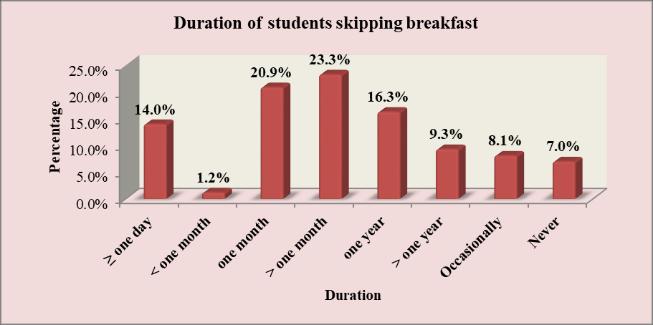
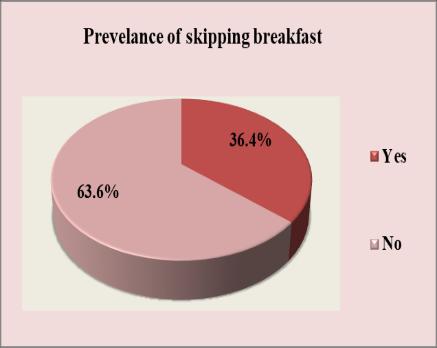
Figure 2: Period of skipping breakfast among participants during university life
Among all participants, 34.4% of students have mentioned the period skipping breakfast during their university life. Among the responded students, most of them (23.3%) skipping their breakfast for more than one month. Except them, other respondents skip their breakfast as one or more than one day was 14%, less than one month was 1.2%, one month was 20.9%, one year was16.3% and more than one year was9.3% (Figure 2). Among the breakfast skippers, 72% of them skipped breakfast at least once in a week, as reported by another the study conducted by Abaidoo in 2014 [5]
International Journal of Healthcare Sciences ISSN 2348-5728 (Online)
Vol. 9, Issue 2, pp: (122-128), Month: October 2021 - March 2022, Available at: www.researchpublish.com
B. Food habits of the students
Nearly one third (32%) of the participants consumed breakfast every day. Almost equal percentage (34%) of the students agreed that they consume their breakfast before 9.00am every day Half of them (50.4%) consume a healthy morning diet every day. Few participants (10.4%) strongly disagreed with the preference to consume processed foods as their breakfast (table-1) According to some other studies, overall the majority of participants (84.8%) were regular breakfast consumers, while the remainders were either irregular (10.6%) or non-consumers (4.6%) and a higher proportion of women (87.9%) were regular breakfast consumers, compared with men (81.8%) [7]
Table 1: Breakfast habit among participants
Variables (n=250)
Strongly disagree Disagree Neutral Agree Strongly
Agree
No (%) No (%) No (%) No (%) No (%)
I eat breakfast every day 12 (4.8%) 35 (14.0%) 37 (14.8%) 86 (34.4%) 80 (32.0%)
I eat breakfast before 9.00am everyday 22 (8.8%) 34 (13.6%) 57 (22.8%) 85 (34.0%) 52 (20.8%)
I consume a healthy diet everyday 13 (5.2%) 44 (17.6%) 126 (50.4%) 56 (22.4%) 11 (4.4%)
I prefer to consume processed food as breakfast 26 (10.4%) 62 (24.8%) 94 (37.6%) 48 (19.2%) 20 (8.0%) Usual food source of majority (48.4%) of students during the university period was faculty/Hostel canteen. Others have their food by home (10.4%), self-cooking (20.8%), hotel/ restaurants (6.4%), hospital canteen (10.4%) and other places (3.6%). According to finding of the result white rice is the most common (61.6%) breakfast in families of the students. Other types of breakfast such as foods made by white flour, foods made by red flour, grains (chickpea, cowpea, green mung bean and etc.), white rice, red rice, bakery products, ulundu and others equally distributed among family food habits of the students.
When considering the overall food habit level of participants Most of participants have moderate breakfast habit level in highest percentage of 48.8%. Among all participants for the study 37.2% have adequate and 14% have inadequate food habit.
C. Awareness on importance of breakfast
On awareness on the importance of breakfast, 95.2% of students considered breakfast as the most important meal of the day as similar studies also revealed similar findings. There was a possibility that students were not fully aware of the risks of skipping breakfast and the benefits of taking a good breakfast [5]. Around two third (58.8%) had desire to overeat later in their rest of the day when skipping breakfast. 67.2% of students had not help to lose weight by skipping breakfast. Relative to those with infrequent breakfast consumption (0–3 days/week), participants who reported eating breakfast daily gained 1.9kg less weight over 18years has reported by study on Breakfast Frequency and Development of Metabolic Risk [8]. 20% of respondents have experienced positive effect of skipping breakfast. 86% participants have experienced negative effect of skipping breakfast. 80% of participated students have feel energized during my morning lectures when they do not skip their breakfast.20% of participants have responded that they have experiences in positive effects of skipping breakfast such as reduced discomfort and feeling of nausea or vomiting while traveling in highest (40.4%), loss of weight (23.7%), reduced blood sugar level (20.2%) and 33.3% of other effects.
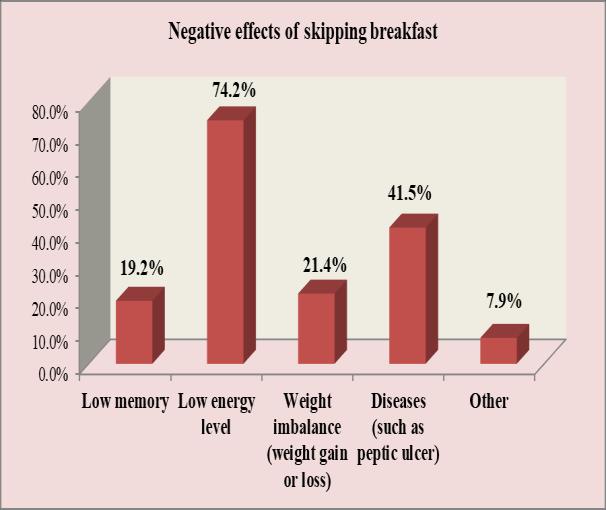
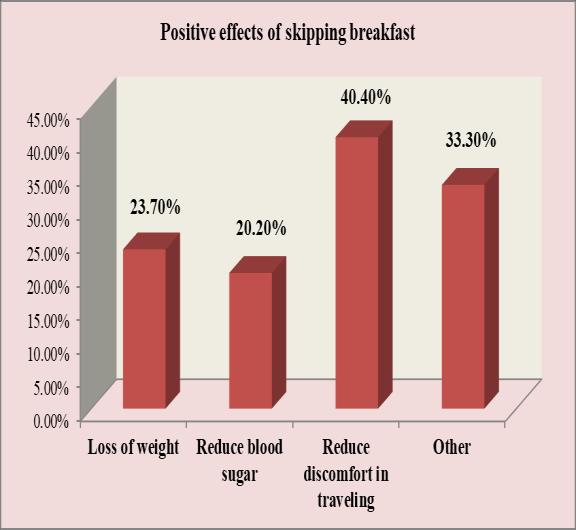
International Journal of Healthcare Sciences ISSN 2348-5728 (Online)
Vol. 9, Issue 2, pp: (122-128), Month: October 2021 - March 2022, Available at: www.researchpublish.com
According to the obtained responds most of the students (74.2%) have low energy level, other than that low memory (19.2%), weight imbalance that weight gain or weight loss (21.4%), diseases such as peptic ulcer (41.5%) and 7.9% of other effects as experience of negative effects on skipping breakfast and overall 86% of students have experienced negative effects (figure-3).
D. Academic performance and skipping breakfast
According to the overall experience of students in highest percentage 68.8% of them have inadequate, 4.8% adequate and 26.4% moderate own experience level during their academic activities related to skip their breakfast (figure-4).
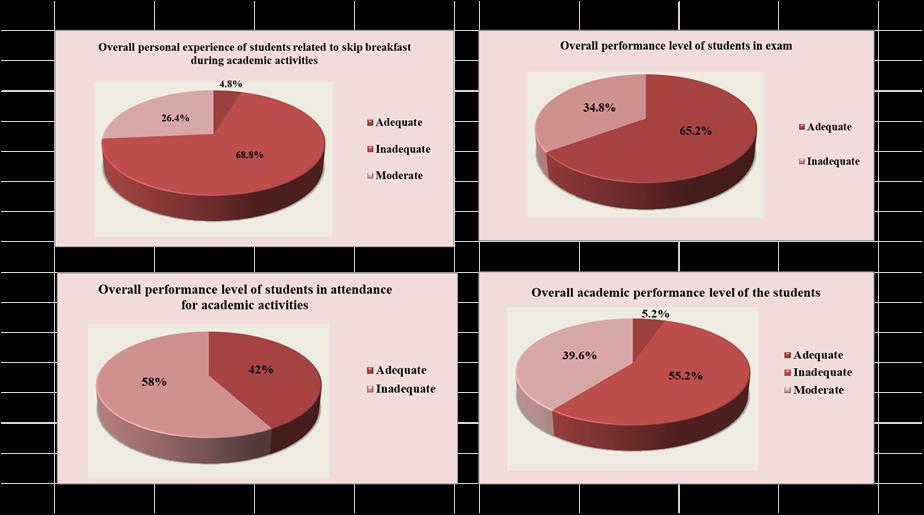
Figure 4: Academic performance among breakfast skippers
They have often, sometimes or never experienced Feel dizziness, laziness, lack of energy in morning lectures or clinical placement, feel gastric discomfort during the study period, feel difficulty in studying for long hours and extracurricular activities, poor attention during lectures time, feel breakfast skipping affect cognitive, problem solving skills, communication with others and Not always active, energetic due to skipping of breakfast. Overall, 78.5% of the clinical students has confirmed that they felt tired or very tired when they had no breakfast according to the report on breakfast habits among medical students [5].
Table 2: Association between skipping breakfast and academic performance
Variables (n=250) Academic performance level
According to the data obtained from faculty administration 65.2% of students have adequate performance level in exam and 58% of students have inadequate performance level in attendance for their academic activities. Overall academic performance of the students has considered together their own experience, exam performance as well as attendance and the finding result was that 5.2% of them have adequate, 55.2% inadequate and 39.6% moderate academic performance
International Journal of Healthcare Sciences ISSN 2348-5728 (Online)
Vol. 9, Issue 2, pp: (122-128), Month: October 2021 - March 2022, Available at: www.researchpublish.com
level (fgure-4 and table -2). There was a significant association between skipping breakfast and academic performance of the students. Inadequate academic performance was slightly higher among skippers but adequate academic performers were bit higher among non- skippers (figure-5)
Figure 5: Academic performance between breakfast skippers and non-skippers
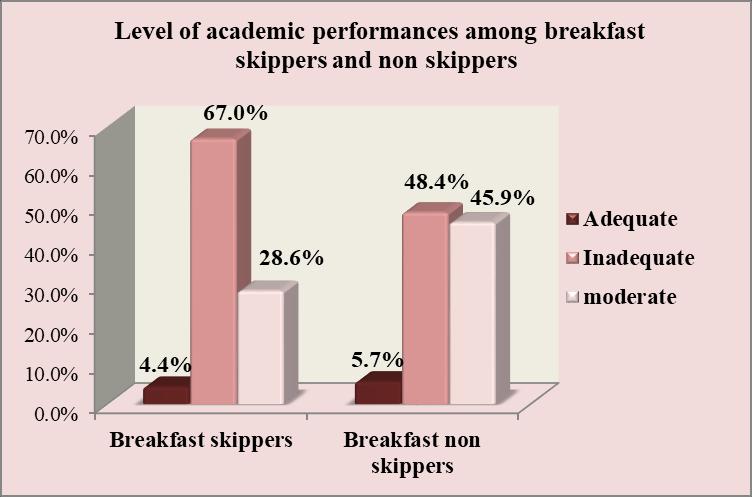
In comparisons between both groups, differences were noticed in parameters like memory, concentration, grade obtained and attendance within breakfast skippers and non-skippers. One of other related study has confirmed that lack of breakfast contributed to fatigue and lack of concentration among clinical students while there was no significant association between the numbers of times skipped breakfast [5]. Breakfast skippers scored fewer grades than breakfast non skippers and a highly statistical significance was seen between breakfast skipping and attendance confirming that breakfast skippers had less school attendance that breakfast non skippers according to a study in Sri Lanka [6]. As the result of this study there is evidence of significant association between skipping breakfast and Ethnic group, Religion and BMI level of the students. Some other studies have reported that age, gender and socio economic status has significant at0.05% level between breakfast consumption and demographical factors according to finding result of study on the effect of breakfast on academic performance and behaviour in school children from Batticaloa district in our country [6].The prevalence of skipping breakfast among students of FHCS, EULS was 36.4%. The students had different food habits while their main food source was the faculty or hostel canteen. Among the skippers, the majority of the students were skipping their breakfast due to lack of time. Since the breakfast is considered as the main and important meal of the day, there had been poor awareness on it among the skippers of breakfast. As the adverse effects of skipping breakfast, many of them felt dizziness, laziness, lack of energy, difficulties in attending morning lectures, clinical placement and extracurricular activities.
In comparisons between both groups, differences were noticed in parameters like memory concentration, grades obtained and attendance between breakfast skippers and non-skippers. According to the overall findings of this study, the participants who had poor to moderate food habit also had an inadequate academic performance level. There was a significant association of skipping breakfast with academic performance of students who are learning in FHCS, EUSL. The study shows also that there is an association of skipping breakfast with Ethnic group, Religion and BMI level of the students with a P-value of less than 0.05 for 95% confident interval. The skippers of breakfast were not only facing difficulties and achieved an inadequate level of academic performance, many non-skippers also had inadequate level of academic performances. Hence there was a small elevation among non-skippers in their academic performance. Therefore, there can be other factors of which were not identified in this study may influence academic activities among students in FHCS, EUSL, rather than skipping breakfast. So the researchers welcome further studies on this area.
IV. CONCLUSION
Considering the overall result, the skippers were not only facing difficulties and achieved an inadequate level of academic performance, many non-skippers also had inadequate level of academic performances. Hence there was a small elevation among non-skippers in their academic performance. Therefore, there can be other factors of which were not identified in this study may influence academic activities among students in FHCS, EUSL, rather than skipping breakfast.
International Journal of Healthcare Sciences ISSN 2348-5728 (Online)
Vol. 9, Issue 2, pp: (122-128), Month: October 2021 - March 2022, Available at: www.researchpublish.com
REFERENCES
[1] Spence, C. (2017). Breakfast: The most important meal of the day? In International Journal of Gastronomy and Food Science (Vol. 8, pp. 1–6). AZTI-Tecnalia. https://doi.org/10.1016/j.ijgfs.2017.01.003
[2] Gardner, M. P., Wansink, B., Kim, J., & Park, S. (2014). Better Moods for Better Eating : How Mood Influences Food Choice Science Direct Better moods for better eating : How mood influences food choice. Journal of Consumer Psychology, 24(3), 320–335. https://doi.org/10.1016/j.jcps.2014.01.002
[3] Adolphus, K., Lawton, C. L., Dye, L., Adolphus, K., Lawton, C. L., Champ, C. L., & Dye, L. (2016). The Effects of Breakfast and Breakfast Composition on Cognition in Children and Adolescents : A Systematic Review The Effects of Breakfast and Breakfast Composition on Cognition in Children and Adolescents : A Systematic Review 1 – 3. May 2019. https://doi.org/10.3945/an.115.010256
[4] Schusdziarra, V., Hausmann, M., Wittke, C., Mittermeier, J., Kellner, M., Naumann, A., Wagenpfeil, S., & Erdmann, J. (2011). Impact of breakfast on daily energy intake - an analysis of absolute versus relative breakfast calories. 1–8.
[5] Abaidoo, B. (2014). Breakfast eating habits among medical students Breakfast eating habits of students. 48(2), 66–70.
[6] Sivapatham, V., & Nadarajah, S. (2017). The Effect of Breakfast on Academic Performance and Behaviour in School Children from Batticaloa District. In Journal for Nutrition. Photon (Vol. 110).
[7] Varela-moreiras, G. (2018). Intake and Quality. Findings from the ANIBES Study, Research Initiative. https:// doi.org/10.3390/nu10091324
[8] Breakfast Frequency and Development of Metabolic Risk. (2013). 36. https://doi.org/10.2337/dc13-0316
